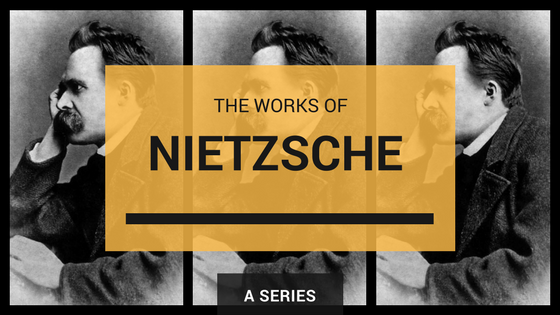
D. Tilsley
E. Burt
Why do the ‘Last Men’ keep blinking? – E. English
After reading (most of) the first two sections of Thus Spoke Zarathustra, I have chosen not to discuss the significance of Zarathustra’s character, nor the three metamorphoses of the spirt, nor any other significant aspect of the book. No, I have chosen instead to spend my Sunday afternoon obsessing over the triple repetition of a single phrase within the space of twenty sentences – ‘and blink’.
In section five of ‘Zarathustra’s prologue’, which discusses the problematic notion of the ‘Last Man’, the phrase ‘and blink’ is repeatedly used. It is always after the Last Men are describing themselves:
‘We have discovered happiness,’ say the Last Men and blink.
[…]
‘Formerly all the world was mad,’ say the most acute of them and blink.
[…]
‘We have discovered happiness,’ say the Last Men and blink.[1]
Aside from the repetition being annoying, it is probably not accidental – especially not for a clever bloke like Nietzsche. So why is it repeated? What is it even supposed to mean? Do the Last Men have something in their eyes?
Etymology
Perhaps by exploring the etymology of the term both in English and, more importantly, in the German an answer will come to light.
English
Apparently, the English verb ‘to blink’ originates from the Old English ‘blican’, meaning to shine or to glitter. Similarly, it may originate from the Old Dutch term ‘blinken’, meaning to sparkle or to twinkle.[2]
German
In the original German text, the section reads:
‘Wir haben das Glück erfunden’ – sagen die letzen Menschen und blinzeln’[3]
And so on. According to Google translate (that highly accurate translation source), ‘blinzeln’ translates into English simply as ‘blink’; which is probably why the translators used that word. However, ‘blinken’ also translates directly from German to ‘blink’. As mentioned above, ‘blinken is associated with the ability to sparkle or shine.
Within the context of the Last Man’s nature
What does this mean for the overall Last Men idea? Although it is purely speculation, it could be possible that the Last Mens’ blinking is used to further illustrate their appeal to the ‘ordinary’ people Zarathustra is talking to / at in the market. For example, if when the last men say ‘we have discovered happiness’ etc. the blinking afterwards is them ‘shining’. Their appeal to the ordinary, for whom the Übermensch idea requires too much effort, is emphasised in the fact that being a Last Man not only offers simplicity and comfort, but also a desirable appearance.
But, if Nietszche had had this in mind why did he not simply write ‘said the Last Men, and shined’. Firstly, it would have sounded ridiculous. Secondly, the physical action of blinking, the effort and deliberate nature of the movement, further emphasises the appeal of the Last Men. By deliberately choosing to blink after speaking, the anthropomorphised version of the Last Man notion is a) rubbing it in Zarathustra’s face that the ordinary people prefer him over the Übermensch; and b) is so sure that he is correct in his comfortable life that he repeatedly wishes to show it off.
Granted, this is based purely upon translation peculiarities and the development of language. Who knows whether or not Nietzsche intended the repetition to hold such significance. Perhaps you have a better idea of what it could mean – stick it in the comments below ↓↓↓
[1] Friedrich Nietzsche, ‘Thus Spoke Zarathustra’ in The Nietzsche Reader edited by Keith Ansell-Pearson and Duncan Large (Oxford: Blackwell, 2006) p. 259
[2] [N,A] ‘Blink’ in The Online Etymology Dictionary < http://www.etymonline.com/index.php?term=blink > [accessed 12th March 2017]
[3] Friedrich Nietzsche, Also Sprach Zarathustra (Berlin: Gruyter, 1968) pp. 13-14
Hit that LIKE button
Read the previous post in this series here >>> #5 Daybreak



1 Comment